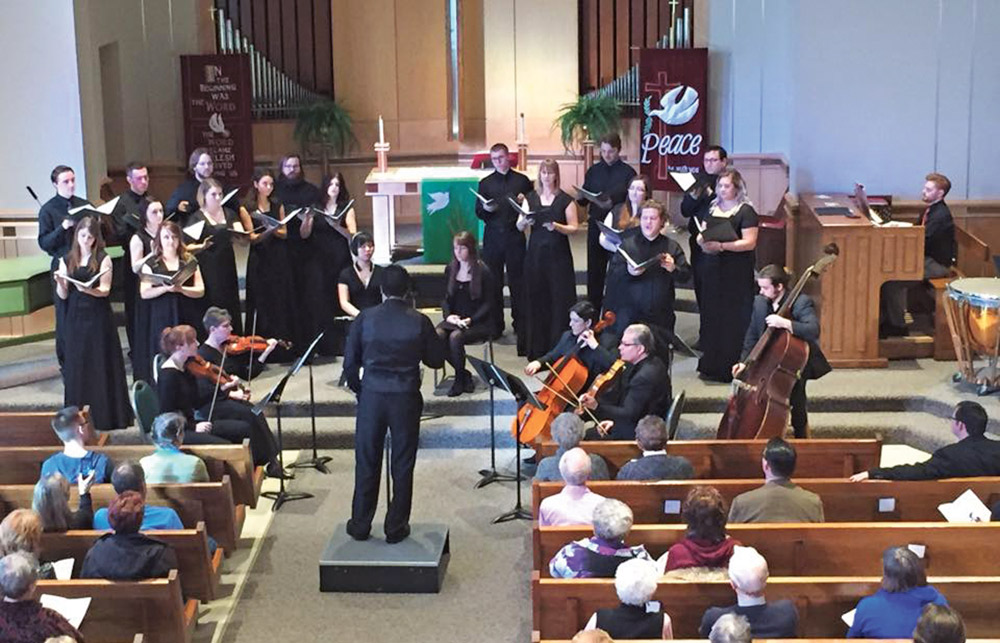
This weekend’s festival featured 18 pieces by seven composers, including J.S. Bach and
Antonio Vivaldi.
This weekend, members of the North Dakota State Baroque Festival Orchestra enlivened a bygone era.
Arguably the most influential Western musical period, the Baroque era began in the early 17th century and concluded in the mid-18th century. Several renowned Western composers, including J.S. Bach, Antonio Vivaldi and G.F. Handel, performed and composed during this era.
Baroque music is known for its lively, complex and often challenging structure, which makes it intimidating but especially rewarding to experienced musicians.
The 2016 NDSU Baroque Festival began with an evening performance on Saturday at Peace Lutheran Church. Student musicians, occasionally accompanied by faculty members, performed eight iconic Baroque pieces, including “Bess of Bedlam” by Henry Purcell and “People, Believe This Grace Now” by J.S. Bach.
All compositions apart from “Bess of Bedlam” were, rather unsurprisingly, written by Bach, who is considered one of the most prolific composers of the era. The musical diversity of the selections more than made up for the lack of variety.
Each student musician showed an extraordinary talent, certainly worthy of the difficult material.
The festival concluded with an afternoon performance on Sunday, also at Peace Lutheran. Both faculty members and students performed ten additional pieces by six composers, most notably the third movement of Bach’s second Brandenburg Concerto and Vivaldi’s “Magnificat.”
Additionally, the performance featured the NDSU Faculty Brass Quintet and the NDSU Saxophone Quartet.
Much like Saturday’s performance, Sunday’s showcased the remarkable abilities of NDSU’s student and faculty musicians. Baroque music is infamously difficult, but they make it sound easy.
Many well-known musical genres arose and developed during the Baroque period, including the opera, the cantata and the concerto. To many historians and critics, Baroque music represents the foundation of both subsequent musical periods and more recent genres, such as jazz.
